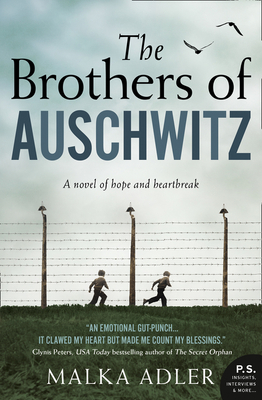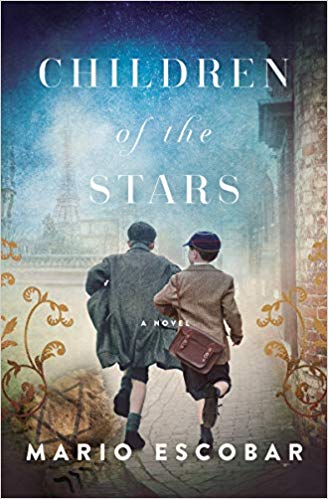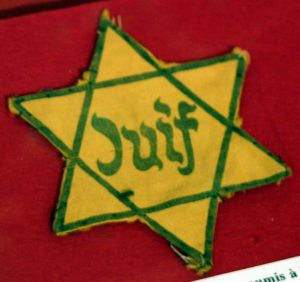 The Brothers of Auschwitz by Malka Adler, Noel Canin
The Brothers of Auschwitz by Malka Adler, Noel Canin Format: eARC
Source: supplied by publisher via Edelweiss
Formats available: paperback, ebook
Genres: biography, historical fiction, Holocaust, World War II
Pages: 464
Published by One More Chapter on September 1, 2020
Purchasing Info: Author's Website, Publisher's Website, Amazon, Barnes & Noble, Kobo, Bookshop.org
Goodreads
An extraordinary novel of hope and heartbreak, this is a story about a family separated by the Holocaust and their harrowing journey back to each other.
My brother’s tears left a delicate, clean line on his face. I stroked his cheek, whispered, it’s really you…
Dov and Yitzhak live in a small village in the mountains of Hungary, isolated both from the world and from the horrors of the war. But one day in 1944, everything changes. The Nazis storm the homes of the Jewish villagers and inform them they have one hour. One hour before the train will take them to Auschwitz.
Six decades later, from the safety of their living rooms at home in Israel, the brothers finally break their silence to a friend who will never let their stories be forgotten.
Told in a poetic style reminiscent of Atwood and Salinger, Malka Adler has penned a visceral yet essential read for those who have found strength, solace and above all, hope, in books like The Choice, The Librarian of Auschwitz and The Tattooist of Auschwitz.
This paperback includes an exclusive 14-page P.S. section with an author Q, an Author’s Note and a reading group guide.
Praise for The Brothers of Auschwitz
‘I sat down and read this within a few hours, my wife is now reading it and it is bringing tears to her eyes’ Amazon reviewer
‘The story is so incredible and the author writes so beautifully that it is impossible to stay indifferent. I gave the book to my mom and she called me after she finished crying and telling me how much she loved it’ Amazon reviewer
‘It is a book we all must read, read in order to know … It is harsh, enthralling, earth-shattering, rattling – but we must. And nothing less’ Aliza Ziegler, Editor-in-Chief at Proza Books, Yedioth Ahronoth Publishing House
‘Great courage is needed to write as Adler does – without softening, without beautifying, without leaving any room to imagination’ Yehudith Rotem, Haaretz newspaper
‘This is a book we are not allowed not to read’ Leah Roditi, At Magazine
My Review:
Fiction is the lie that tells the truth, as it does in this biographical novel about two brothers’ harrowing experiences as prisoners in Auschwitz in 1944-45 and their long journey to find each other again. And what happened after.
The story is searing in its intensity, all the more so because so much of it is based on interviews that the author conducted with its protagonists. Even though this is labeled as a “biographical novel”, it feels true in all of its horror.
Although there is a framing story of the author going to visit Dov and Yitzhak to interview them, the power in this narrative comes from the two men telling what feels like the unvarnished and unwhitewashed truth about not just what happened to them during the war, but also what they did to keep themselves alive. And how both shaped the men they became and lingered for the rest of their lives.
It’s a compelling story in its harsh treatment of its subjects, or perhaps it’s better to describe it as harsh in the way that its subjects treat themselves. Death would have been easy to find. Survival was hard and brutal, a desperate struggle every single day for one mouthful of food and precious few hours of sleep. The conditions they existed under were designed to eliminate as many Jews as possible, and succeeded all too well. Even after the Germans knew that the war was lost, they were still doing their utmost to march as many as possible until they died.
But this set of multiple first-person accounts of what barely constituted life under the thumb of the Nazi SS – seemingly even more deadly when not in an actual concentration camp – spares no one in its telling, not the Nazis, not the Christians who were so willing to see the Jews carted away so they could claim their homes and possessions, and not the survivors who saw and felt themselves as barely human when the Nazis were finally gone.
I’m not saying liberated, because that doesn’t seem to be the right word. Long after the war, but particularly in its immediate aftermath, the brothers make it clear that they carried their oppressors and their experiences with them into rehabilitation camps and forever after.
This is a book that compels the reader to stay with it, even as you want to turn your eyes away. Or perhaps especially because of that. It’s worse than war in all its horror, it’s bigger than man’s inhumanity to man, and it needs to be read because this is a story that needs to be remembered.
Escape Rating A: This book felt personal to me in ways even beyond my expectations. The area that Dov and Yitzhak are taken from is the area my own grandmother came from. The man they meet briefly in their first camp, the one who is a landowner, could have been my great-grandfather, who was the same, although as far as is known, he didn’t even make it to one of the concentration camps.
So this story feels true for me because it matches what little history I have from my own family. Most of my relatives were already in the U.S. when the Nazis came, and only one who was not survived the camps. He didn’t talk about it and neither did his wife, my great aunt, who was also a survivor. So that Yitzhak and Dov don’t want to talk about it also rang true.
This is obviously a book that got me in the feels. It reads as raw, and brutal, and honest about not just the hardship they faced – and that’s not nearly a strong enough word – but also the desperate acts they committed themselves in order to just live one more day. Nothing is left to the imagination and it’s a story of horror after horror.
And yet, they survived. They left Europe, went to Israel and became part of the foundation of a country whose odds were desperately stacked against it, but survived anyway. And there’s hope in that. The hope that we can make the cry of “Never Again” stick. If we commit ourselves to remember. Read this book, remember, and weep.


 Children of the Stars by
Children of the Stars by 